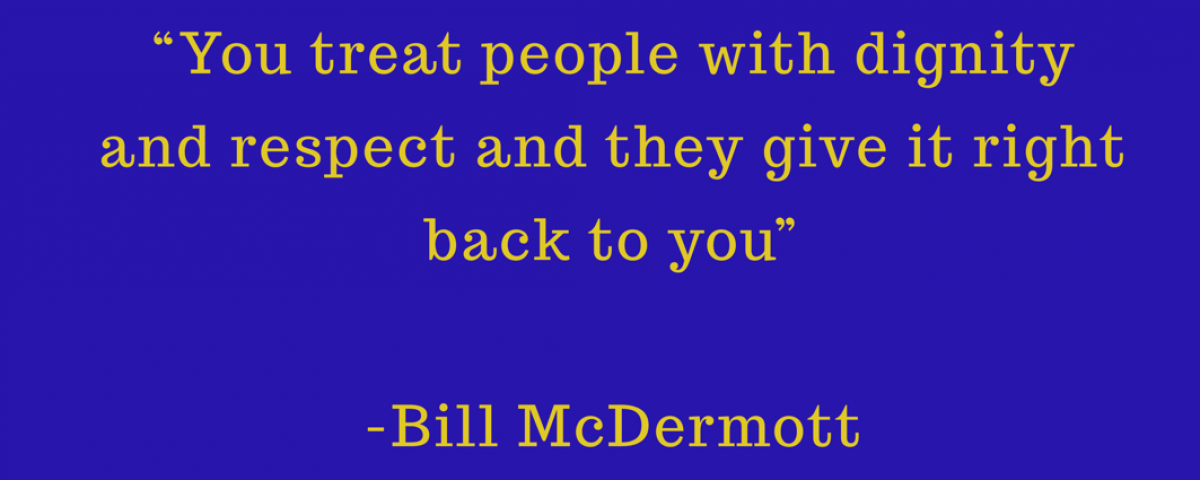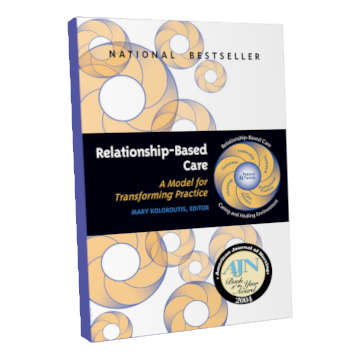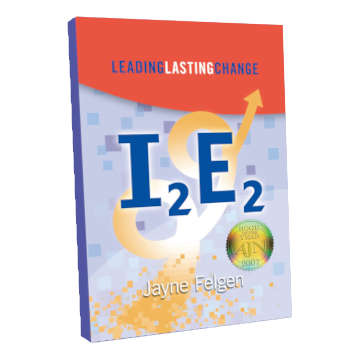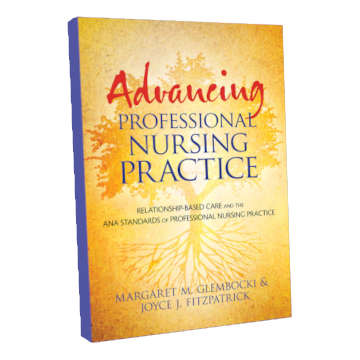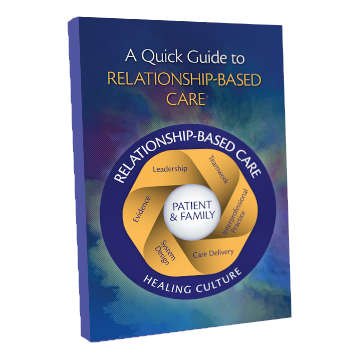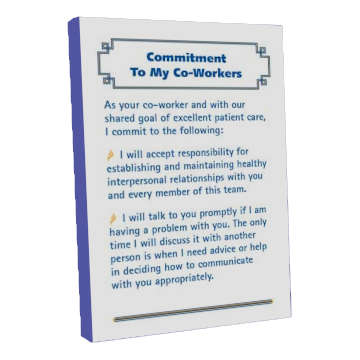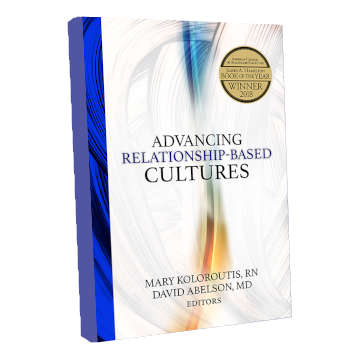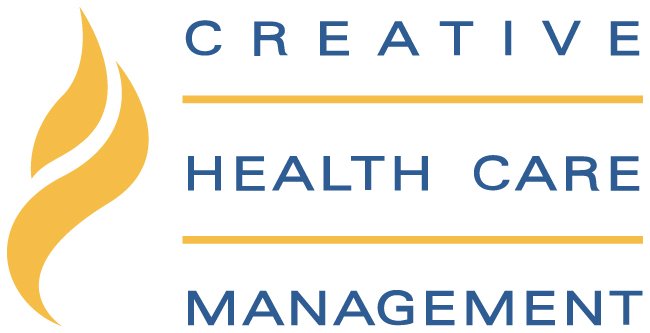by Mary Koloroutis, MSN, RN
The process of hiring new employees reflects the values, beliefs, and behaviors of the organization as a whole.
In a relationship-based organization, the hiring process must be as respectful and welcoming for candidates going through interviews as the organization’s admissions process is for new patients. If our commitment to respectful care means that we wouldn’t keep a patient waiting without information or fail to return a family member’s phone call, that same commitment must extend to the way we treat every person coming into our organization.
Candidates know intuitively that the way they are shepherded through the hiring process parallels the way they will be treated as employees. It only makes sense that we would want the kind of people in our organizations who notice whether human interactions and processes are respectful or not. The hiring process is a way to demonstrate to compassionate, self-aware candidates that we are an organizational match to their way of being. This means keeping appointments as promised, returning phone calls promptly, and following up exactly as we say we will.
Examine your current hiring practices with these questions in mind:
- How would candidates rate the intake process on a scale of 1 to 10? (10 being very personal and friendly; 1 being very impersonal and not friendly)
- What practices/standards do you have in place regarding welcoming and establishing rapport with candidates for hire?
- Are candidates’ calls returned promptly?
- Are candidates’ requests handled in a timely manner?
- How would candidates rate the follow-up process on a scale of 1 to 10? (10 being timely, respectful, as promised; 1 being not timely or no follow-up)
- Are candidates treated with respect in every step of the process whether they are hired or not?
It is likely that your organization considers a promise to a patient to be sacred. If this is so, then it only makes sense that promises we make to anyone within our work culture should be equally sacred. In the hiring process, it is important that you do what you say you will do. It erodes trust to do otherwise, and keeping a promise is an opportunity to model and reinforce caring behaviors. Each promise is an opportunity to demonstrate the kind of respect and follow-through that we hope everyone in the organization will express in their interactions with patients and families.
The entire follow-up process is an opportunity to model the way you’ll want team members to work when they are a part of the organization. When you decide not to hire a candidate, the process of communicating that decision must also be handled with care and respect, as respect for human dignity is a fundamental value to the organization you represent.
Relationship-Based Care: A Model for Transforming Practice
I2E2: Leading Lasting Change
Advancing Professional Nursing Practice: Relationship-Based Care and the ANA Standards
Primary Nursing: Person-Centered Care Delivery System Design
A Quick Guide to Relationship-Based Care
A Quick Guide to Relationship-Based Care is a 68-page booklet outlining the basics of Relationship-Based Care®. This valuable resource is ideal for orientation of the entire workforce in organizations implementing Relationship-Based Care.
Commitment to My Co-Workers© Health Care Card
Recently edited and redesigned to increase clarity, they are used by thousands of health care workers around the world.
Advancing Relationship-Based Cultures
Advancing Relationship-Based Cultures explains and expands a fundamental and often overlooked truth in health care: It is the confluence of relational and clinical competence that advances relationship-based healing cultures.
Relationship-Based Care: A Model for Transforming Practice
I2E2: Leading Lasting Change
Advancing Professional Nursing Practice: Relationship-Based Care and the ANA Standards
Primary Nursing: Person-Centered Care Delivery System Design
A Quick Guide to Relationship-Based Care
Commitment to My Co-Workers© Health Care Card
Recently edited and redesigned to increase clarity, they are used by thousands of health care workers around the world.
Advancing Relationship-Based Cultures
Advancing Relationship-Based Cultures explains and expands a fundamental and often overlooked truth in health care: It is the confluence of relational and clinical competence that advances relationship-based healing cultures.

